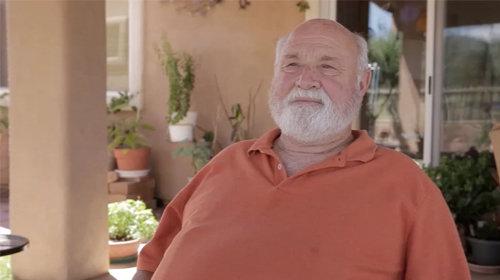John Ladd’s family has owned 14,000 acres of farmland along the U.S.-Mexico border since 1896. The Ladd’s formed an informal partnership with Mexican farmers, as did other farmers on both sides of the border, to help each other out when they could. That is until the Border Patrol closed the border by erecting a wall in the 1990s. Now Mr. Ladd claims that he has lost his privacy and property rights under the Border Patrol’s broad police powers.
Ladd claims that border agents will regularly “race their vehicles through my property, busting through our fences, tearing up roads, and running down cattle.” However, when Ladd and other ranchers tried to recover damages they were turned away. As a result Ladd’s days are spent mending the fences agents have destroyed.
Border patrol agents have broad powers regarding private property within 25 miles of the border. This means that for U.S. property owners like Ladd the agents are free to enter his property at any time without the need for a search warrant. They cannot, however, enter homes without a search warrant. In Ladd’s case the daily visits by agents are disrupting every aspect of his life.
Ladd claims that the intrusion does not end with just the mere entry onto his property but involves the installation of permanent surveillance equipment. Ladd believes about “$40 million worth of high-tech surveillance equipment” has been installed by the Border Patrol “including three 80-foot-tall surveillance cameras equipped with infrared night vision.” This includes one camera that is pointed right at Ladd’s house. Around 200 ground sensors are positioned around the property. All of this has been done without seeking permission from Ladd.
Since 2005, the number Border Patrol agents have doubled. According to the ACLU, the government has acknowledged that the agents are poorly trained and do not understand the agency’s policies. Homeland Security compiled a report that detailed 1,187 were filed with Customs and Border Protection (CBP) between 2007 and 2012. The CBP is now the United States largest law enforcement agency and costs taxpayers $19 billion annually.
What is disconcerting about the increase in border enforcement is that two-thirds of the population lives in what the ACLU refers to as a “constitution-lite” zone. That is, the same constitutional protections against unreasonable searches and seizures that apply in non-border areas do not apply in the 100-mile buffer zone. At any time anyone, including a U.S. Citizen, is subject to arbitrary stops by Border Patrol Agents. The ACLU is documenting many of the cases, including Ladd’s account, and monitoring the situation.


